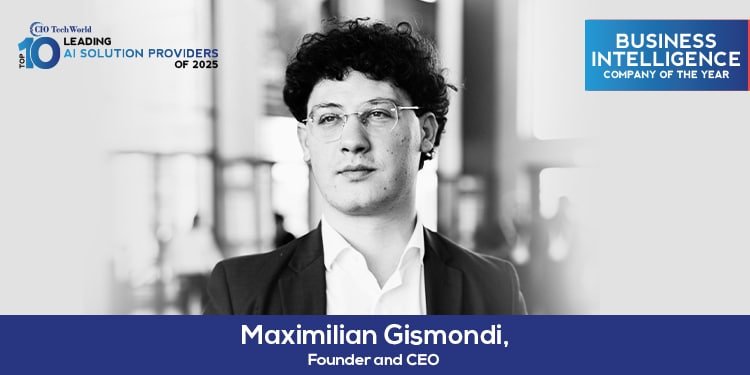Greg Taffet possesses over four decades of experience in technology, business, industry, and operational systems. The majority of this expertise comes from his role as a CIO, driving technology transformation in some of the world’s largest organizations. In 2007, he assumed the position of CIO at U.S. Gas and Electric, Inc. (USG&E), holding this role until 2018. Greg is recognized for his pivotal role in the technology transformation of USG&E, aligning it with the company’s growth. The company doubled in size each year for the last six years until it was eventually sold.
Before joining USG&E, Greg served as the Vice President and CTO for MxEnergy. He was a founding employee and held this position for nine years. Greg also gained extensive manufacturing experience at the Bodine Corporation, occupying various roles, including Manager of Systems and Integration. As a founder of the Wellington Systems consulting firm, he accumulated significant experience in the financial, automotive, and banking industries.
The South Florida Digital Alliance awarded him the 2012 Universal Access Award in the individual category for his extensive accomplishments. Greg was honored with the 2017 CIO of the Year Apogee Award by South Florida Business and Wealth.
Additionally, for the past eight years, Greg has organized the CIO Track at ITPalooza, the largest CIO-level invite-only event in South Florida.
Currently, Greg is the Founder, Managing Partner, and CIO of Taffet Associates, offering fractional and interim CIO services to SMBs, rapidly scaling businesses, and startups.
With many significant career milestones and numerous prestigious recognitions, Greg’s career story serves as an inspiration to many. We take pride in presenting it to you.
Describe your career progression from the start to where you are and what were pivotal decisions, moves you made, circumstances, and other facts that facilitated your growth.
I graduated from school knowing how to program computers, so I took my first job as an entry-level programmer. I struggled at that first job because college had not prepared me with the business skills necessary to understand all the fundamental business requirements of the projects assigned to me. At this point, I decided to learn more about business and finance. These additional skills along with picking up the soft skills of writing and presenting helped me have an advantage over the other people in the firms where I worked to get better projects and higher visibility. It was only at my second job that I learned how to look at the big picture of a project and not just the part I was assigned so that I could proactively make suggestions that affected the success of the project. This set of decisions to learn more about business and all the non-technical skills, present constructive suggestions, and communicate with my management and the project owners was what helped me grow into the CIO role.
What are the key skills and qualifications that aspiring tech executives in the tech industry should focus on developing to enhance their career prospects?
The most important skill is understanding finance. Whether it is to keep track of the budget of the project you are working on or to understand the fundamentals of the project, finance and accounting skills have been very important.
The other very important skill is how to ask a question. Many times, people make assumptions about what they are working on, and only when the project is completed do they find out that, they did not deliver what the customer wanted. By asking questions we gain the knowledge to deliver the right product to our customers.
Finally, keep up with technology. It changes fast and you need to know about areas that will affect your business. You can never keep up with everything so be specific and learn about new advances in areas that are of interest to you.
What are some key milestones or achievements that tech executives should aim for at various stages of their careers to demonstrate their growth and readiness for higher-level roles?
Start by managing a small project or a small team. Then work your way up to larger teams and larger projects. Successfully completing a project is the best way to demonstrate you have the skills to take on larger projects.
How important is it for tech executives to actively seek out mentorship or coaching opportunities to advance their careers? What benefits can they derive from such relationships?
A mentor is the key to success. Find someone who will be honest with you, to help you see both your strengths and weaknesses. This can be a formal mentor, a peer, and in many cases, it can be your boss. I have found that most tech people don’t ask for advice but are glad to get it when they receive it. A mentor will help you even if you don’t know the question to ask.
In your experience, what role does professional networking play in the career progression of tech executives? How can tech executives effectively build and leverage their networks?
Networking whether within your company or with others that are in other companies is the best way to keep up with your industry and develop a group of peers that you can talk with and find out about how they solve problems.
Professional networking helps you keep up with opportunities. Not only do you hear about the jobs the other members of your network are taking, you hear about jobs that are opening up before they are made public. Getting a recommendation from a person in your network is now the key to getting a job when you are competing with other qualified applicants.
Are there any specific certifications, advanced degrees, or executive education programs that can significantly enhance the career prospects of tech executives in the tech industry? Which ones would you recommend?
I don’t recommend any. REAL experience is much better than any program, degree, or certification. An exception is if the company has specific requirements to move up. In that case, you should follow the roadmap they set out to advance your career. Another exception is if you recognize a weakness in your skills and find the right program to help you. Choosing the right program to fill in a weakness will make you more well-rounded and can enhance your career.
Lastly, what advice would you give to aspiring tech executives who are looking to accelerate their career progression and make a lasting impact in the tech industry?
Find a mentor. Find someone who will be honest with you, to help you see both your strengths and weaknesses.
Ream more CXO Ladder Articles:
CIO’s Journey Marked by An Eye for Opportunities, Continuous Learning, and Unyielding Perseverance
The CIO Who Mastered the Cross Section of Technology and Business

As a visionary Business and Technology Leader, I bring a proven track record of driving innovation, fostering collaboration, and delivering exceptional results in fast-paced and dynamic environments. I have honed outstanding skills in articulating a compelling vision and rallying active support from internal executives, development teams, and client business and IT leadership. I am proud to be a member of both the Forbes Technology Council and HITEC (Hispanic Technology Executives Council), which underscores my commitment to being at the forefront of industry trends and developments.
My special talent is demonstrating value to clients at all touch points – I instill these concepts in my teams.









